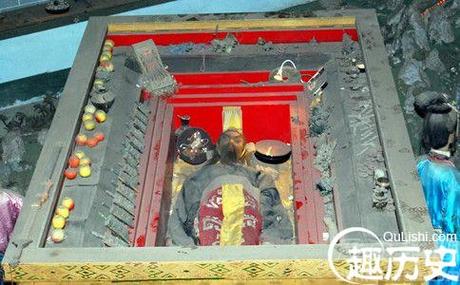
Three Treasures of the Qin Shi Huang Tomb: Insights into an Emperor's Obsession
The tomb of Qin Shi Huang, China's first emperor, remains a treasure trove of historical and archaeological significance. While much of the mausoleum remains unexcavated, discoveries like the Terracotta Army offer a captivating glimpse into the emperor's personality, beliefs, and aspirations. Three notable items interred within the tomb – the terracotta warriors, bronze weapons, and simulated rivers of mercury – provide compelling insights into Qin Shi Huang's character and legacy.
The Terracotta Army: A Silent Guardian for Eternity
Perhaps the most famous of the tomb's contents is the Terracotta Army, a vast collection of life-sized clay soldiers, horses, and chariots. Arranged in battle formation, this silent army numbers in the thousands, each figure meticulously crafted with unique facial features, armor, and weaponry.
The sheer scale and detail of the Terracotta Army reveal Qin Shi Huang's preoccupation with power and his desire for protection in the afterlife. Just as he unified China with his formidable army in life, he sought to maintain his authority and security even in death. The individualized features of each soldier further suggest his belief in the importance of a loyal and personalized retinue, even in the next world.
Bronze Weaponry: Tools of Power and Prestige
Alongside the terracotta warriors, archaeologists have unearthed a vast array of bronze weapons, including swords, spears, crossbows, and arrowheads. These weapons, many still sharp and in pristine condition, showcase the advanced craftsmanship of the Qin dynasty. The use of bronze, a material associated with power and prestige, further underscores the emperor's status and military might.
The presence of these weapons within the tomb served a dual purpose. First, they represented the tools of Qin Shi Huang's earthly conquests, a testament to his power and authority. Second, they were meant to equip his terracotta army in the afterlife, ensuring his continued dominance even beyond the mortal realm.
Rivers of Mercury: A Symbol of Immortality and Power
Ancient Chinese texts describe the tomb as containing simulated rivers and seas of mercury, a substance associated with immortality and the cosmos in Chinese alchemy. Although the existence of these mercury rivers has yet to be confirmed through excavation (due to the potential environmental hazards), high levels of mercury detected in the tomb's soil lend credence to the historical accounts.
The inclusion of mercury speaks to Qin Shi Huang's obsession with achieving immortality. He actively sought the elixir of life and believed that mercury, with its transformative and fluid properties, held the key to eternal life. The simulated rivers of mercury, therefore, represented his desire to recreate his earthly dominion on a cosmic scale, transcending the boundaries of life and death.
Conclusion
The terracotta warriors, bronze weapons, and simulated rivers of mercury buried within Qin Shi Huang's tomb are not merely extravagant burial goods. They are symbolic representations of the emperor's character and his deepest desires – power, security, and immortality. These objects provide an invaluable window into the mind of a ruler who shaped Chinese history and whose legacy continues to captivate the world.
Q&A
Q1: What is the significance of the individualized features of the terracotta warriors?
A: The unique facial features, armor, and weaponry of each warrior suggest that Qin Shi Huang valued a personalized and loyal retinue, even in the afterlife. It reflects his attention to detail and his belief in the importance of individual soldiers within his vast army.
Q2: Why were bronze weapons included in the tomb?
A: The bronze weapons served a dual purpose: as symbols of Qin Shi Huang's earthly conquests and power, and as equipment for his terracotta army in the afterlife. The use of bronze, a material associated with prestige, further emphasizes the emperor's status and military might.
Q3: How do the simulated rivers of mercury reflect Qin Shi Huang's beliefs?
A: The inclusion of mercury, associated with immortality in Chinese alchemy, highlights Qin Shi Huang's obsession with achieving eternal life. The simulated rivers represent his desire to recreate his earthly dominion on a cosmic scale, transcending the limitations of mortality.